According to Mr. Daniel Kritenbrink - What reforms does Vietnam need to increase confidence in trade?
That’s a great question. I think when you talk to U.S. trade negotiators and U.S. corporations, as Ambassador Osius mentioned, Vietnam has long been an attractive investment market. The reason is because the Vietnamese government has sent a strong signal to foreign investors that Vietnam is always open to investment, especially in key sectors.
As Ambassador Osius pointed out, I believe that the Vietnamese workforce is highly educated, eager to be trained, and highly productive. Vietnam’s leaders have also consistently demonstrated a willingness to work with U.S. and foreign investors to address emerging issues.
I think that American investors and businesses are always looking for more clarity and certainty in the Vietnamese market, especially with regard to measures that the Vietnamese Government can take proactively. In my opinion, the Government can simplify the approval process for large investment projects, shorten the review time and clarify the steps in the process.
Given the importance of supply chains related to information technology, high-tech, semiconductors and other industries to the global economy and to Vietnam, I believe that any efforts by the Vietnamese government to clarify data-related policies – including local data storage requirements – would be helpful. I also know that there are a number of issues related to tax and other financial policies that, if improved, would further increase Vietnam’s attractiveness to investors.
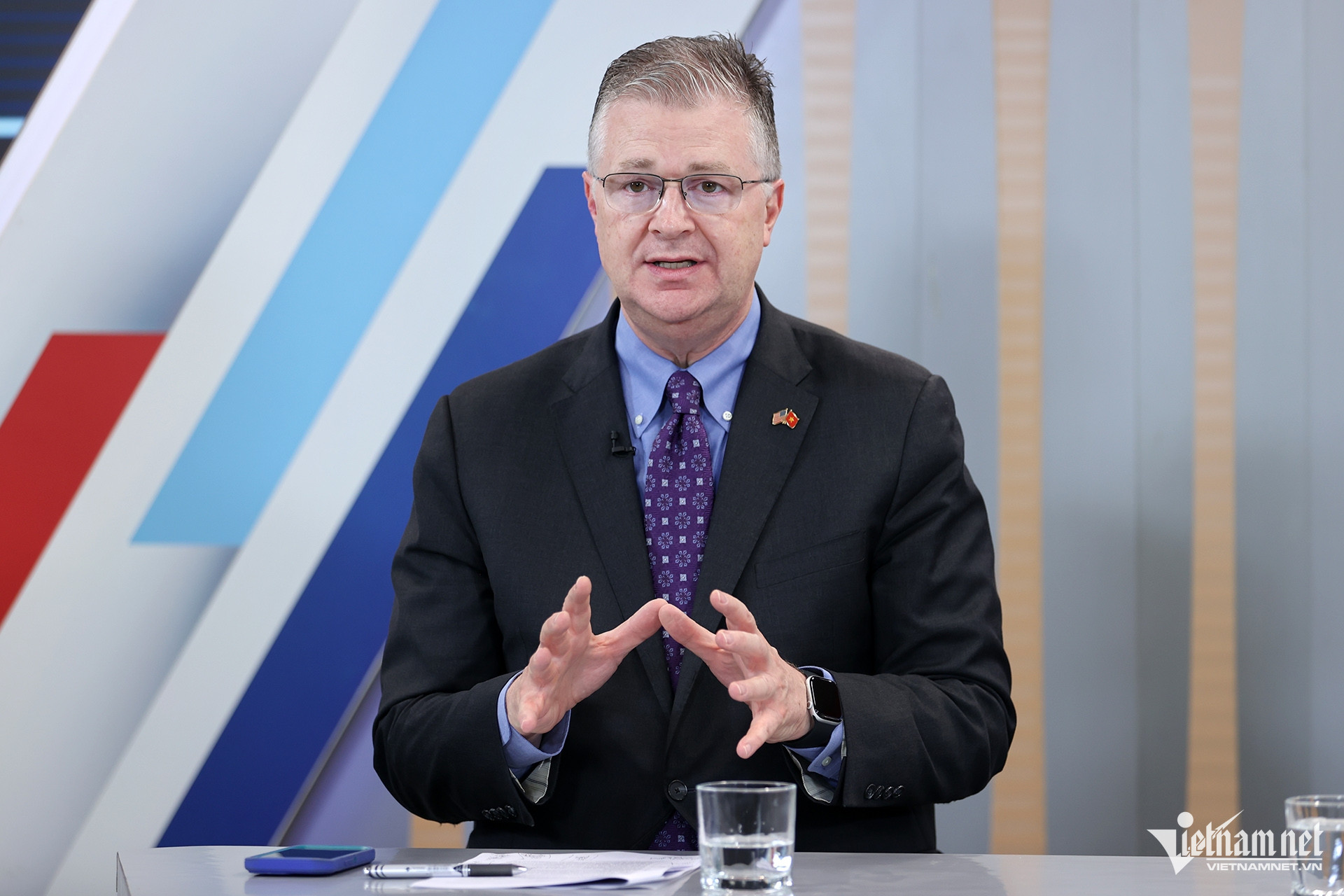
Mr. Daniel Kritenbrink: "The Vietnamese government has sent a strong signal to foreign investors that Vietnam always welcomes investment, especially in key sectors".
All of these are very important. But if we look specifically at the measures that the Vietnamese government can take to improve trade relations with the United States, I think we should continue to proactively engage in a strategic and practical way, and enter negotiations with a comprehensive view.
Of course, we need to negotiate more specifically on tariffs. But Vietnam has also signed trade agreements in the fields of aviation, agriculture and energy. Moreover, Vietnam has also addressed some issues related to market access and similar issues. I believe that this comprehensive approach to trade negotiations, coupled with domestic reforms to simplify and specify regulations, will be the formula for Vietnam's sustainable success.
The Four Pillars for Development in the New Era
We have just mentioned reform, now I want to emphasize the issue of proactivity. According to Ambassador Pham Quang Vinh, what proactive measures should Vietnam take in policy planning and implementation to enhance its strengths while minimizing risks in trade relations with the United States?
Not only America has changed, the world has changed and Vietnam has changed too. Vietnam wants to rise in all aspects, especially the economy. That is the general picture. Specifically, in the face of the current challenges and difficulties in trade relations with the United States, we must consider all three aspects.
Firstly, in economic and trade relations with the United States, we need to continue to seek dialogue and negotiation solutions to ensure mutual benefits, as we have done recently. Tariffs need to be resolved through the methods we have done, and especially by concretizing the exchanges that the two negotiating delegations and senior leaders have put forth.
Second, I agree with Ambassador Daniel Kritenbrink. We must do more with American businesses. American businesses doing business in Vietnam want stability, clarity, and Vietnamese laws that can be calculated. So reform, streamlining, and making things easier for businesses must be done more strongly and quickly.
Next is to create conditions for new industries that Vietnam needs. The Comprehensive Strategic Partnership between Vietnam and the United States emphasizes technology, innovation, digital transformation, and green transformation. The requirements are the policy and legal corridor, human resource training, and the lack of infrastructure that requires us to make great efforts. Let US economists, investors, and businesses accompany Vietnam in the process of economic innovation and growth.
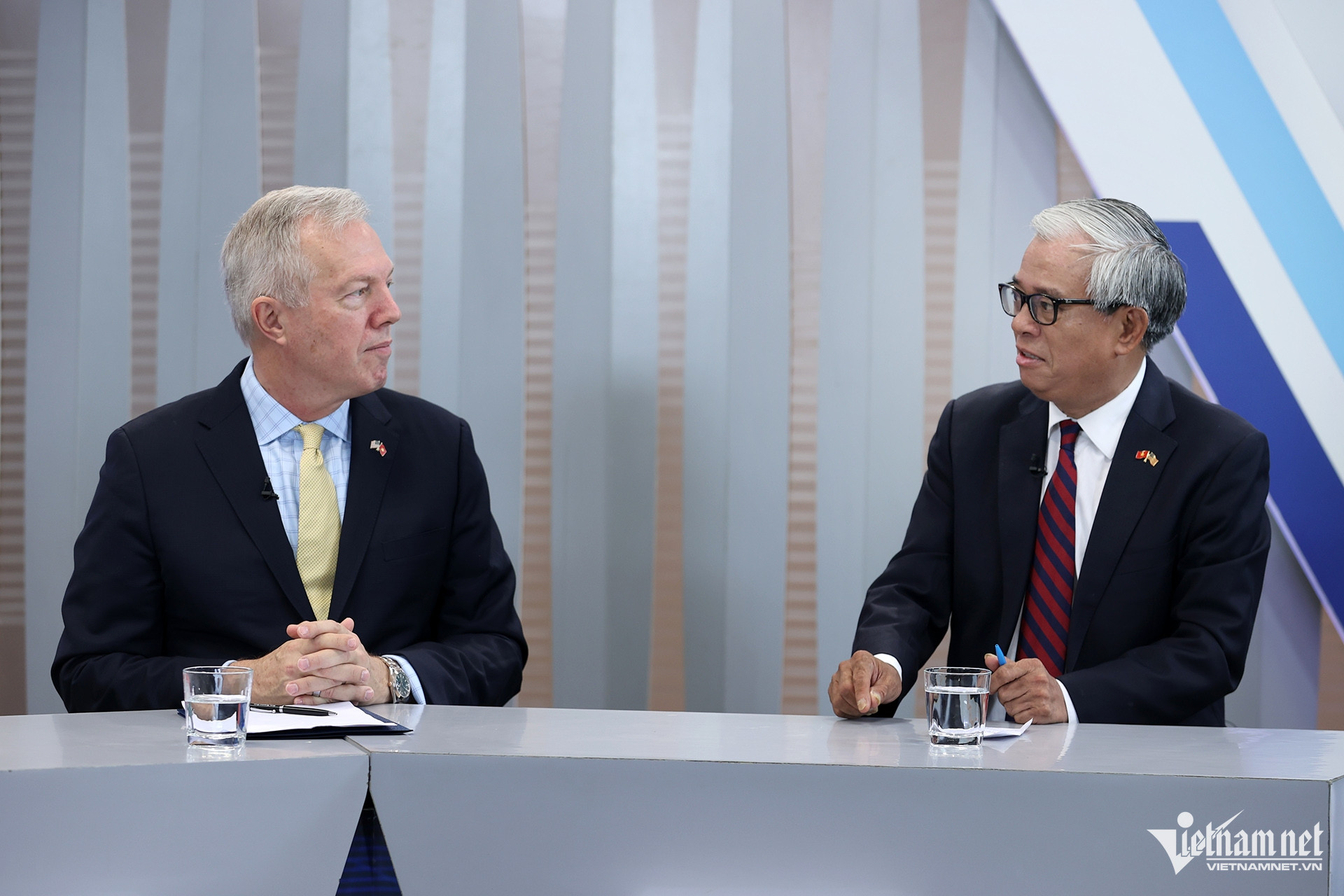
Ambassador Pham Quang Vinh and former US Ambassador to Vietnam Ted Osius
I would also like to share that Vietnam needs to ensure the sustainability of its supply chains with the United States and diversify its supply chains with the world, especially taking advantage of free trade agreements. For a long time, we have been taking advantage of breadth, that is, reducing tariffs, but now we must upgrade the quality of goods and Vietnam's participation in global supply chains to a higher level and higher quality.
The third point to be done is that along with the process of rising up in the new era, economic innovation to promote internal strength must be done faster and towards higher development.
The four resolutions that Vietnam has put forward are called the four pillars for development in the new period: Streamlining the apparatus, the legal framework must be more transparent, clear and convenient; Relying more on innovative technology; Promoting the role of the private economy and enhancing integration with new quality will certainly be the direction in the future. US investors and businesses who want to do business in Vietnam, let's connect US businesses, the Vietnamese Government, and Vietnamese businesses to accompany in this story.
US businesses want to be part of Vietnam's growth
Dear former Ambassador Ted Osius, on the evening of July 11, Prime Minister Pham Minh Chinh had a meeting with representatives of the US-ASEAN Business Council. What recommendations did the US-ASEAN Business Council make during this meeting?
The recommendations we have made are very similar to those shared by Ambassador Vinh and Ambassador Kritenbrink. First of all, our companies appreciate the administrative reforms that are being implemented, including the streamlining of the administrative apparatus, the reduction of procedures, the number of ministries and, especially, the number of provinces.
These are all measures that foreign businesses and investors welcome, as they help simplify market access, business and investment in Vietnam. Investors no longer have to go to too many places to apply for licenses. Ministries have been reorganized, and processes are being updated to become more flexible and truly more attractive to investors.
However, just because the resolutions have been issued does not mean that they are being implemented evenly at all levels. It will take time for everything to work smoothly. The direction from the Central Government is very clear, but changes in personnel at all levels can cause processes to stagnate. This is not what the Vietnamese Government wants. We understand that they want these processes to run smoothly for businesses. So the challenge here is implementation.
Some of the corporations we represent have shared some cases of slow implementation, but overall they are very optimistic about these administrative reforms. They are particularly optimistic about the focus on science and technology development. Resolution 57 is an important document because of the consistent vision that the Vietnamese Government has set out: Vietnam aims to transform itself from a lower-middle-income country to an upper-middle-income country through innovation and science and technology-based economic development.
To realize this vision, Vietnam will need a lot of resources, most of which will come from the private sector. I expect most of them will come from the American private sector. In addition, Vietnam will need to build meaningful partnerships with American and international companies, as well as with academic and research institutions. So I think there will be a lot of discussion at the upcoming Party Congress about how to implement the visions set out in these important resolutions.
The message that the US business community conveyed to the Prime Minister was that they wanted to accompany Vietnam in this process. They believe that the vision set by the Government is correct. They believe that growth through innovation and science and technology development is the right path.
There are still some hurdles to overcome, however, such as tax policy. Additionally, some visa regulations are in the process of being updated, which will benefit businesses. But overall, US businesses are excited about the reforms that are taking place and want to be part of the growth.
According to Ambassador Daniel Kritenbrink, what support can the US provide to Vietnam in the process of upgrading its internal capacity in terms of policy making in general as well as upgrading the capacity of enterprises in particular?
I want to emphasize that the United States government should not forget the principles that have cemented our relationship – mutual respect and shared interests. I believe that supporting a resilient, prosperous, and independent Vietnam is in the national interest of the United States.
And it is those principles that have guided the U.S. government and many U.S. corporations to invest in Vietnam. So I believe that, for the common good, leading U.S. corporations should continue to invest in Vietnam – including investing in training Vietnamese workers, as Ambassador Osius mentioned – and investing to help Vietnam move up the supply chain.
In 2023, when the two countries upgraded their relationship to a Comprehensive Strategic Partnership, the US Government committed to supporting Vietnam in investing in high-tech supply chains. Since then, funding from the US CHIPS Act and the International Technology Security and Innovation Fund has facilitated Vietnam’s investment in these high-tech supply chains. I believe this continues to be a key opportunity for cooperation between the two countries.
The current political environment in the United States is putting pressure on free trade policy. This is a challenge that requires Vietnam to have a skillful strategy to respond to this situation. I believe that what Vietnam has achieved clearly reflects the bilateral trade benefits between the United States and Vietnam, and demonstrates the importance of investing in Vietnam to the national interests of the United States. This is extremely important in the coming time.
Multiplying benefits, knowledge and trust
Dear Ambassador Pham Quang Vinh, from a diplomatic perspective, what is the biggest lesson in negotiating with the US?
Negotiating with the US or anyone else is the same. Personally, I think it must be reasonable and emotional. You care about your national interests, but at the same time you have to think about mutual benefits. That is the principle.
The path in Vietnam-US relations is always to build trust, make appropriate offers, then continue to understand, build trust and maintain dialogue. We did the same with the recent tariff issue. We proactively made early offers, mentioned the interests of Vietnam, the interests of the US and persevered in dialogue.
This is not the first time we do this. Over the past 30 years, even more than 30 years, Vietnam-US relations have always had differences. That requires dialogue, including politics, economics and many other areas such as the environment, labor, etc.
The process of Vietnam - US relations over the past 30 years has been to increasingly strengthen trust and understanding, not only between governments but also at all levels, from Congress to businesses, researchers, and all elements active in American society supporting Vietnam.
From the normalization of relations in 1995, to the bilateral trade agreement in 2001, Vietnam's entry into the WTO, to the Comprehensive Partnership in 2013 and the Comprehensive Strategic Partnership in 2023... shows that the trend in the Vietnam - US relationship is to increasingly increase trust, increase understanding, and intertwine interests.
That is a lesson in diplomacy. Diplomacy is reasonable and emotional, but it must go hand in hand with multiplying benefits, multiplying trust, and multiplying understanding.
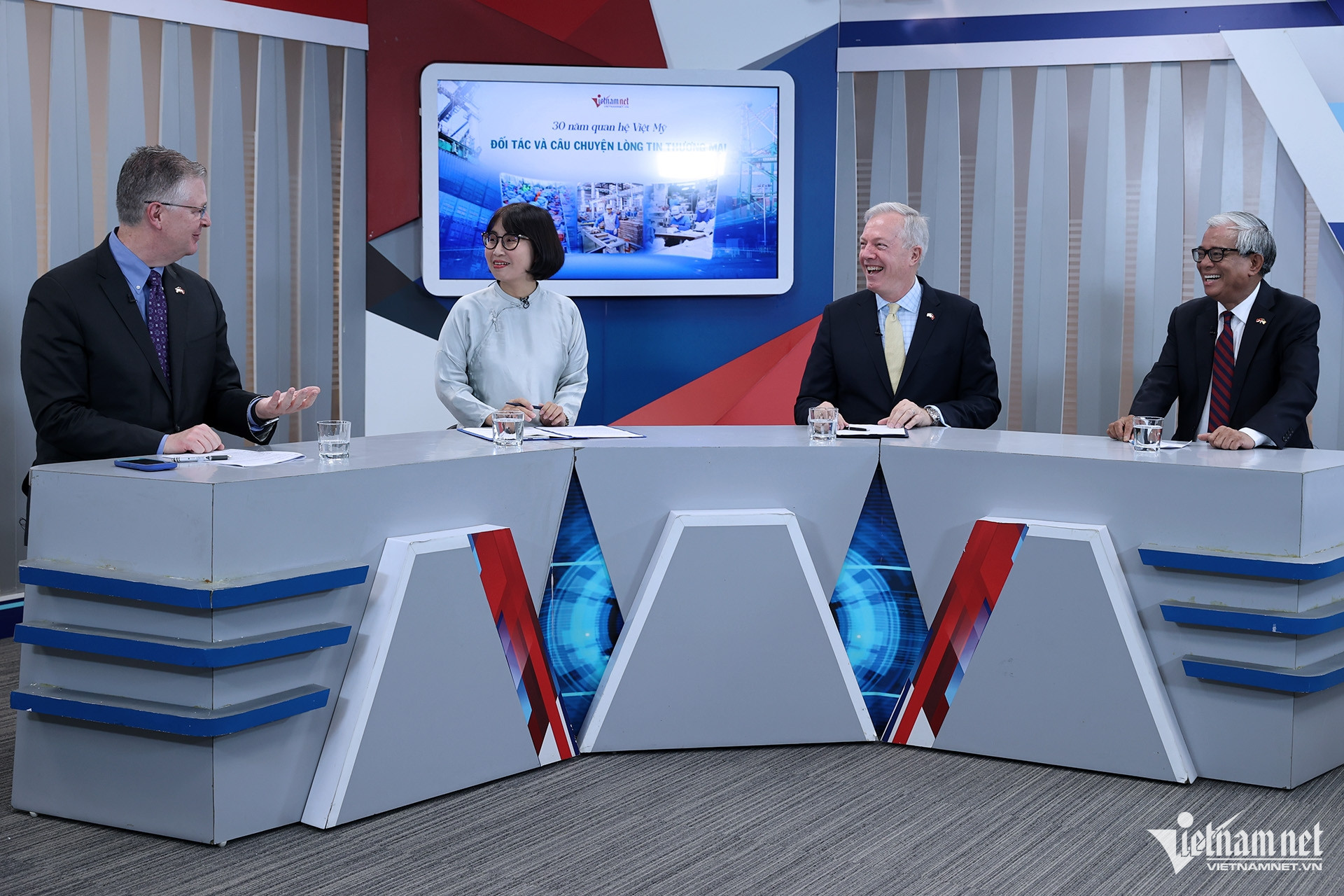
Guests attending the Online Roundtable
Don't give up and keep talking.
If you could send a message to policymakers in both countries, what would it be?
Mr. Ted Osius: First, I want to emphasize what Ambassador Kritenbrink reminded us all: a self-reliant, prosperous, and independent Vietnam is in the great national interest of the United States. This has been the guiding principle in the bilateral relationship between the two countries over the past years.
This relationship began 30 years ago when the two countries announced the normalization of diplomatic relations. President Clinton, with the support of the entire US Congress, declared that it was in the national interest for the United States to develop a friendly relationship with Vietnam, rather than an adversarial relationship. The US government should keep that in mind as the two countries go through ups and downs in their trade relationship, for the common good of building a strong, close relationship with a country that is so important in the Asia-Pacific region.
I would like to add that the 184 corporations we represent are all very interested in the Vietnamese market and see great opportunities here - a country with 100 million people willing to work hard, a government that is very focused on practical and achievable goals, and is growing faster than any other country in Southeast Asia, which together with South Asia is driving global growth. Therefore, this relationship brings a very important opportunity for both countries and should not be missed.
Mr. Daniel Kritenbrink: It’s hard to add anything to Ambassador Osius’s response, but I would like to emphasize two things. First, let’s not forget what got us here. It was mutual trust and respect, including the fact that both sides have formally stated over the past decade that we respect each other’s sovereignty, territorial integrity, independence, and political institutions. So let’s not forget that trust and respect are the foundation of this relationship. It is on that foundation that we have built a friendship that allows us to be frank and honest with each other. I think our negotiators need to be transparent and realistic about what each country wants in the upcoming agreement.
And the final piece of advice I would like to give to negotiators in both countries is: Don’t give up and keep talking. If we look back at the miracle of the Vietnam-US relationship over the past 30 years, including periods that were more challenging than the current one, we should continue to be optimistic and engage in negotiations.
I cannot stress enough that the friendship and partnership that our two countries have built is based on hard work, commitment, dedication and courage. That is what negotiators will need to get through this period. I believe they can do it.
Once again call Vietnam home
Mr. Pham Quang Vinh: I very much share the final opinion of Ambassador Ted Osius and Ambassador Daniel Kritenbrink. That is, we have common interests to promote this relationship. We have come to this point today because of very important principles. That is, mutual respect, respect for each other's institutions and mutual benefit.
I would like to add that we have common interests to promote this relationship. We have enough capacity, enough confidence and enough determination to overcome historical obstacles and the intertwined interests that have existed over the past 30 years.
Because the interests of both countries are very great. The United States sees Vietnam as a very important partner and vice versa. The Vietnam-US relationship has common bilateral interests, but those interests go beyond the bilateral framework. Both sides are interested in efforts to make this region peaceful, stable, and cooperative based on international law; working together for a better world and benefiting all countries, including Vietnam and the United States.
Mr. Ted Osius: Let me add one more thing. The companies that I represent have such great confidence in the future of Vietnam that they would not feel comfortable with me working in Washington. They sent me here. I am now living in Ho Chi Minh City because they see great potential in Vietnam, especially as Ho Chi Minh City becomes more and more of a financial center for the region. So we believe there are so many opportunities and we don’t want to miss any of them. Now, I am very happy to call Vietnam home again.
Mr. Daniel Kritenbrink: I recently joined The Asia Group as a Board Member to play a role in promoting the economic relationship between the United States and Asia, especially between the United States and Vietnam, as well as Ambassador Osius. That is why we have a dedicated Vietnam team, that is why we have an office here and a growing client base from different countries who share our confidence in the Vietnamese market.
Dear readers,
30 years is a long journey with many important milestones in Vietnam-US relations, culminating in the two countries becoming Comprehensive Strategic Partners in 2023. This is also the foundation for Vietnam-US bilateral trade to soon reach the 200 billion USD mark in the near future.
However, the road ahead will still pose many requirements and challenges: strategic vision, supply chain transparency and frank dialogue on disagreements – especially in tariff and trade defense policies.
Once again, thank you Ambassador Pham Quang Vinh, former Ambassador Daniel Kritenbrink and former Ambassador Ted Osius.
Thank you for joining us. Goodbye and see you again.
Vietnamnet.vn
Source: https://vietnamnet.vn/bai-hoc-trong-dam-phan-voi-hoa-ky-va-nguyen-tac-co-ly-co-tinh-2422076.html


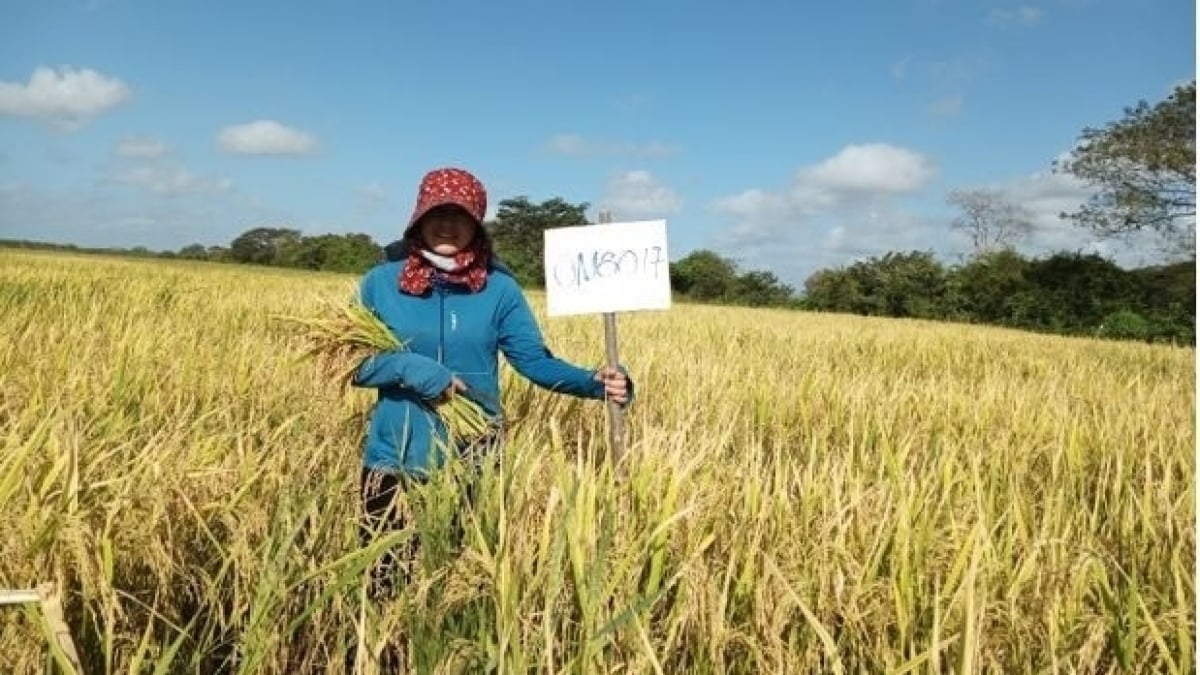
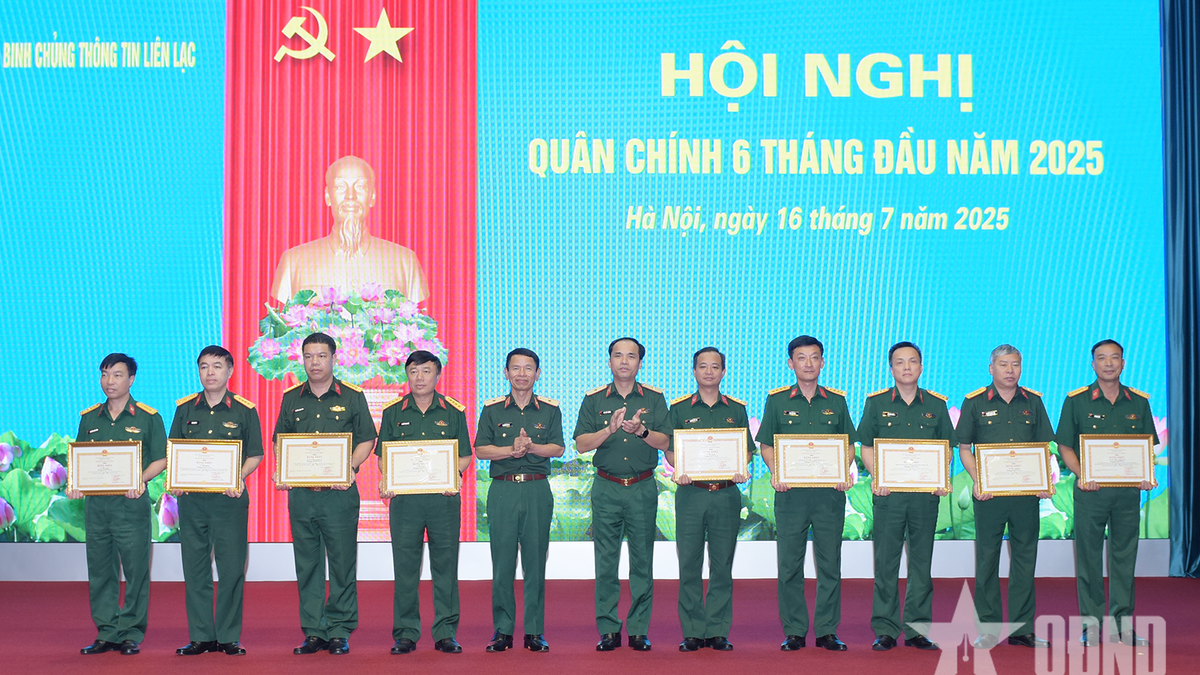
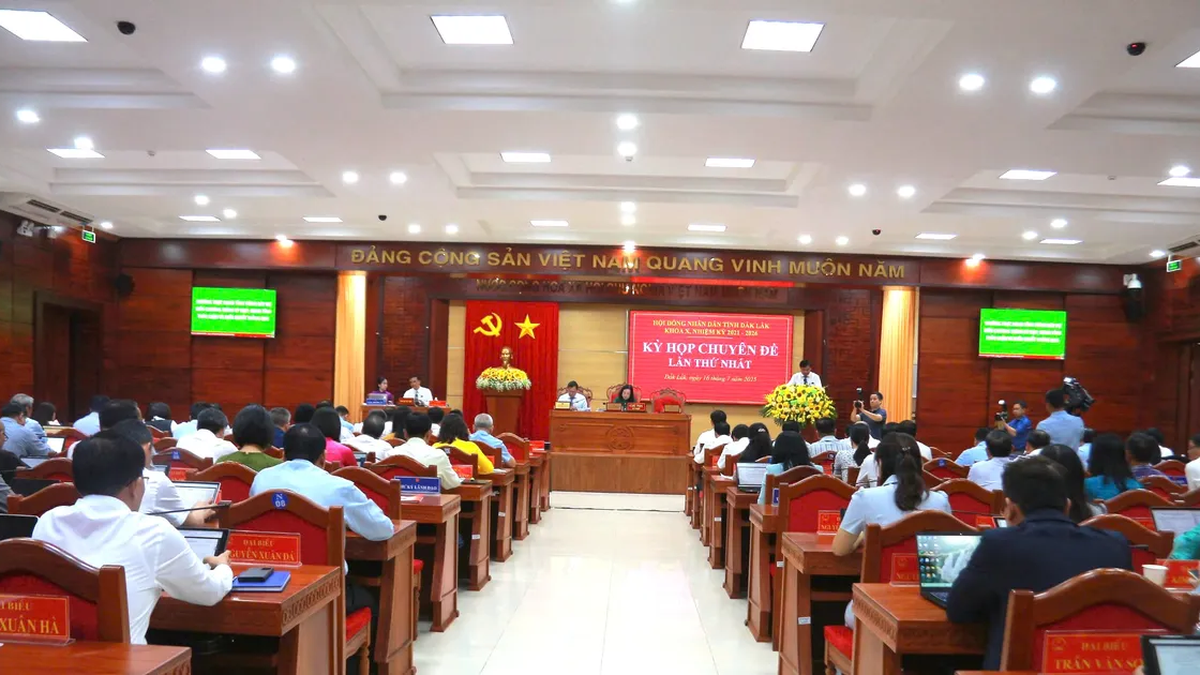
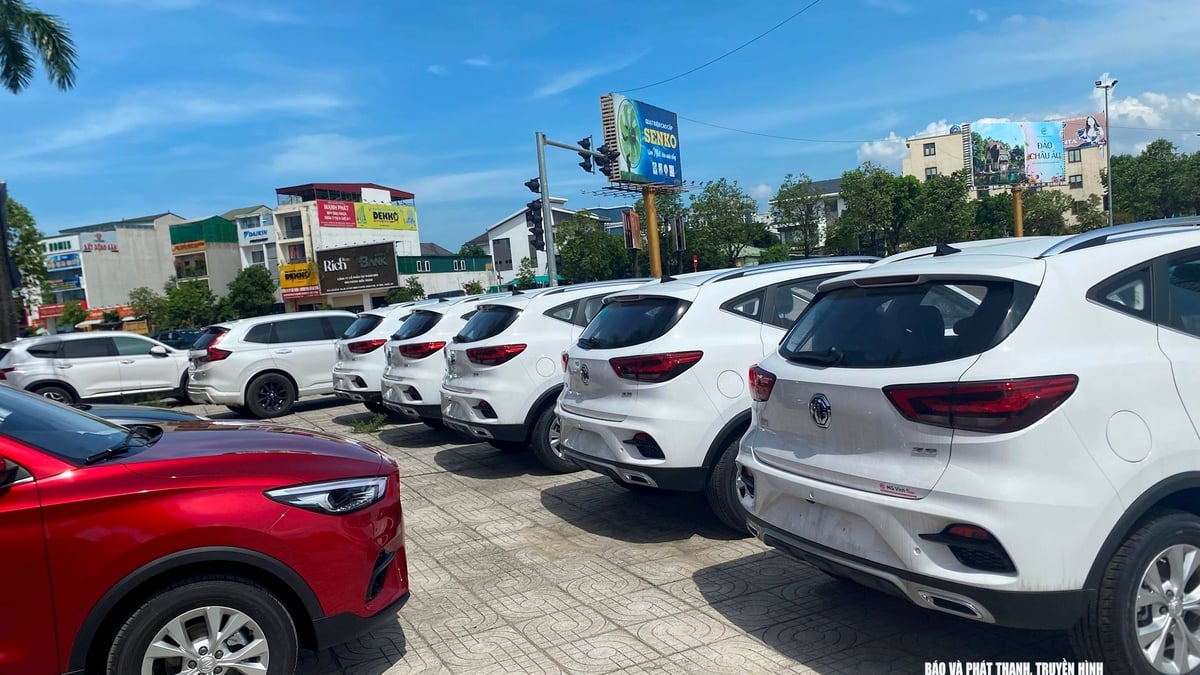
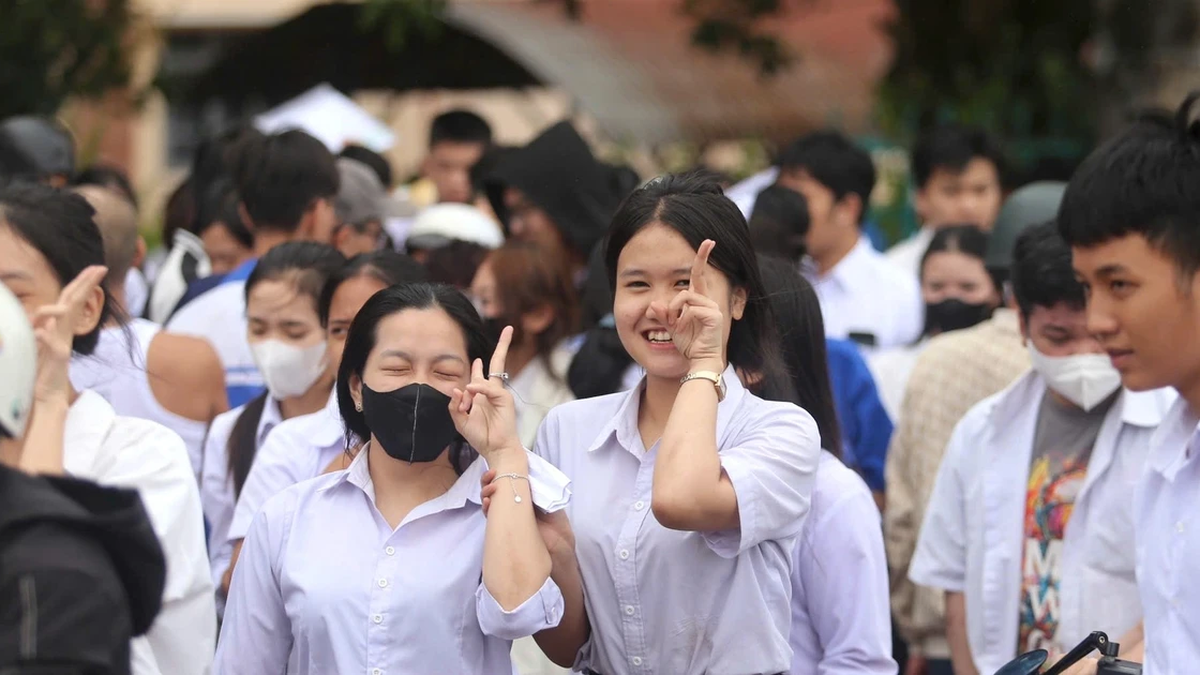
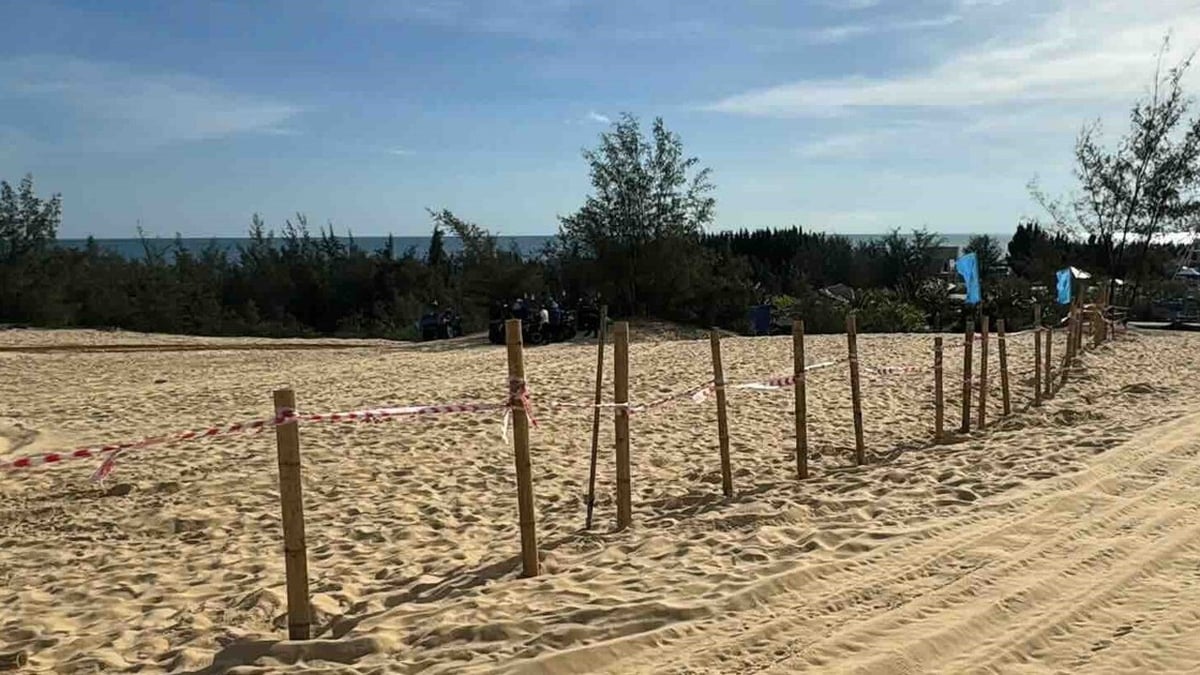
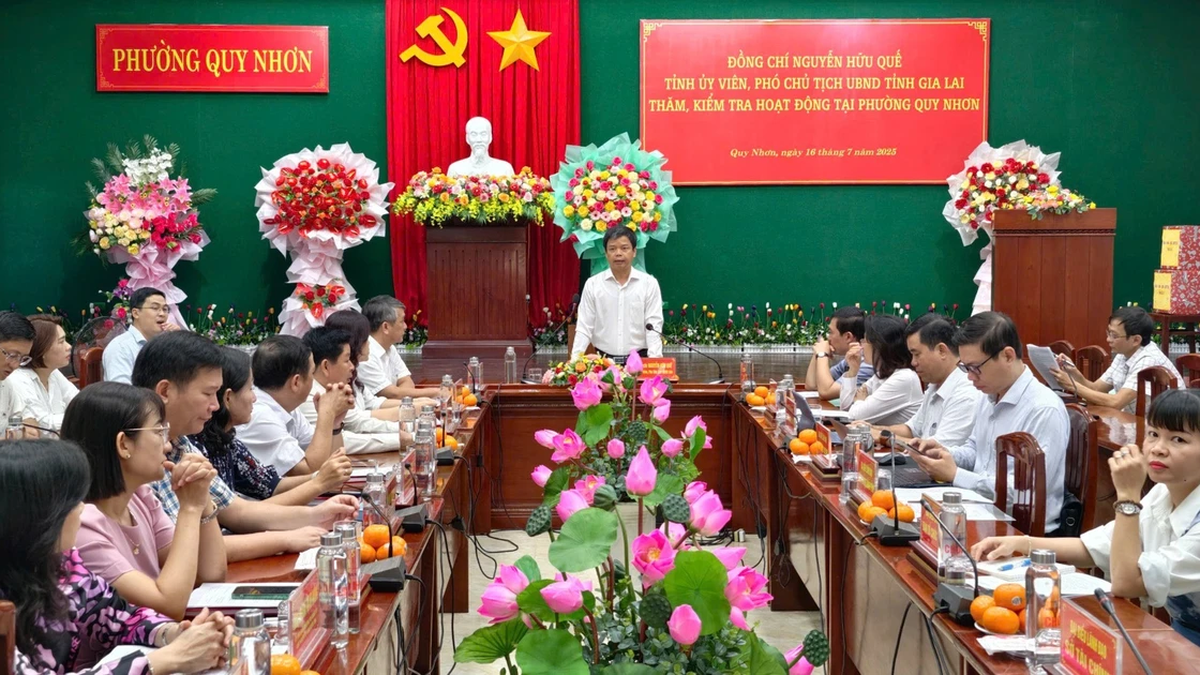
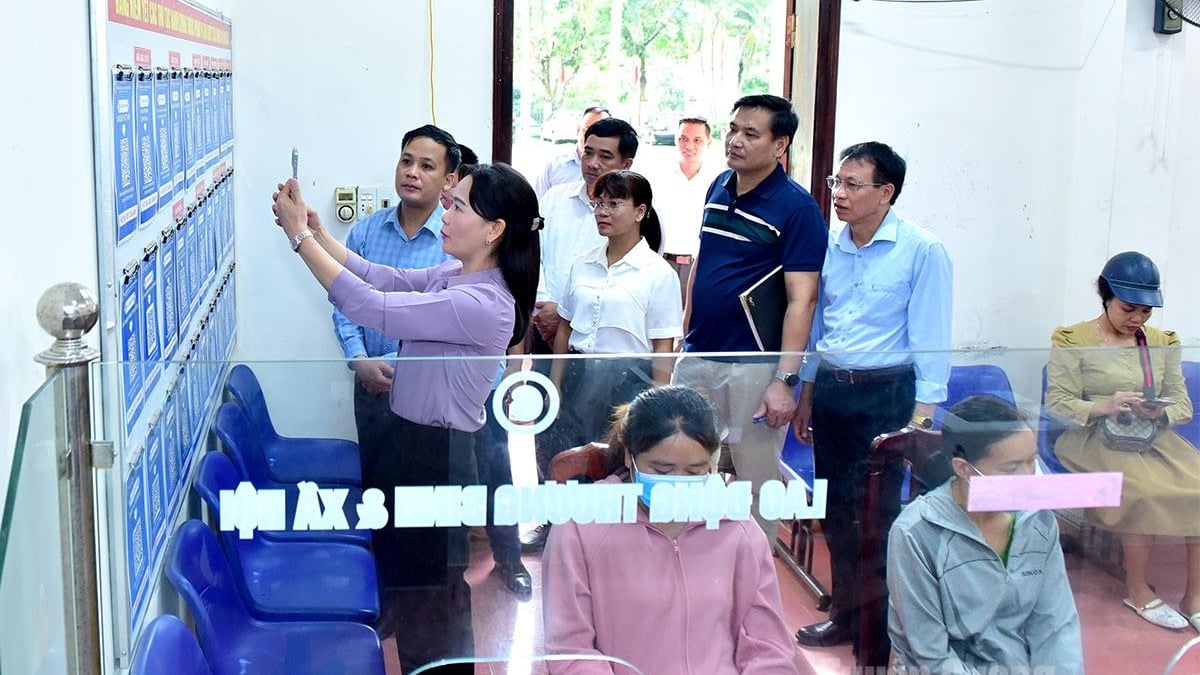

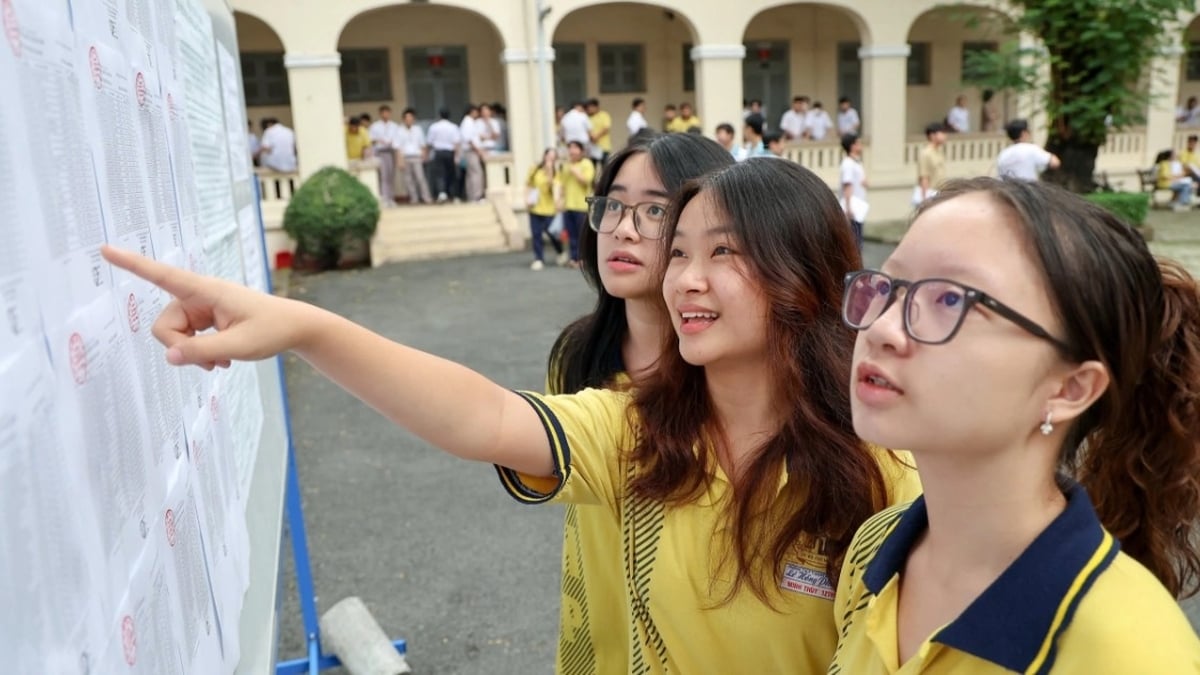
































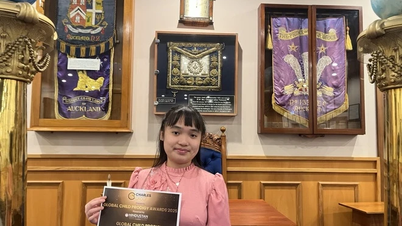
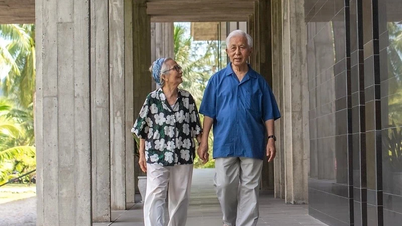

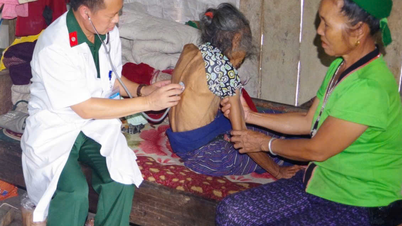








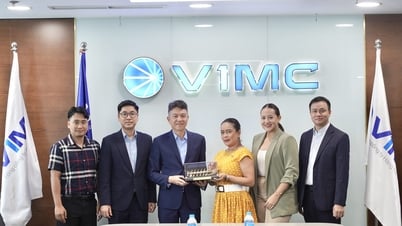


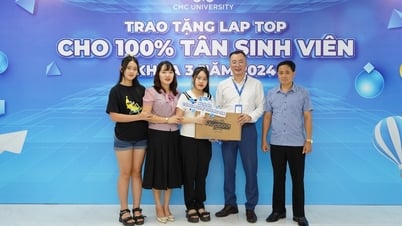

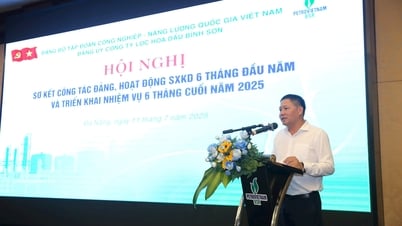

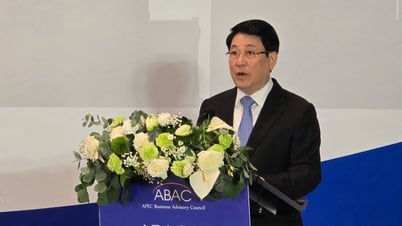




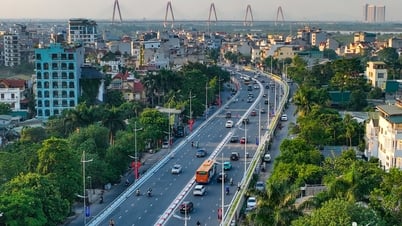
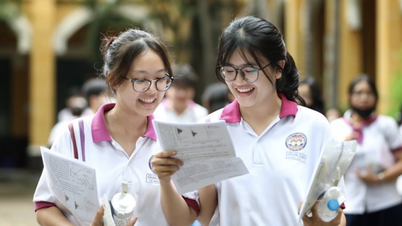
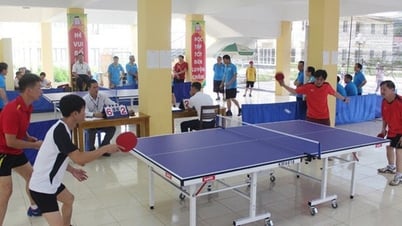

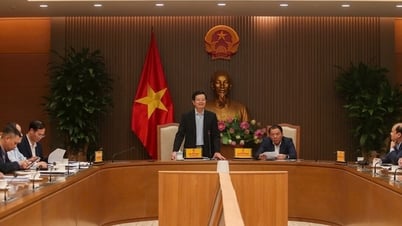
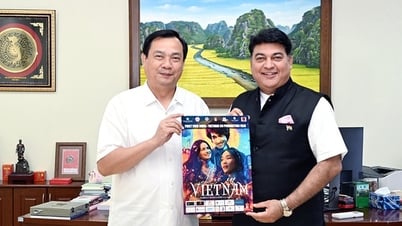
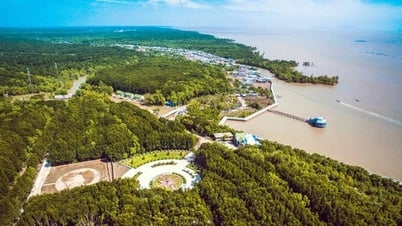
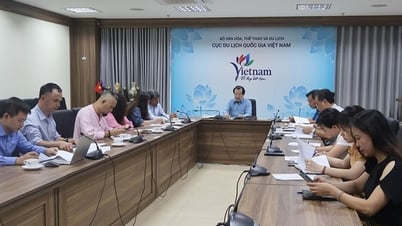






















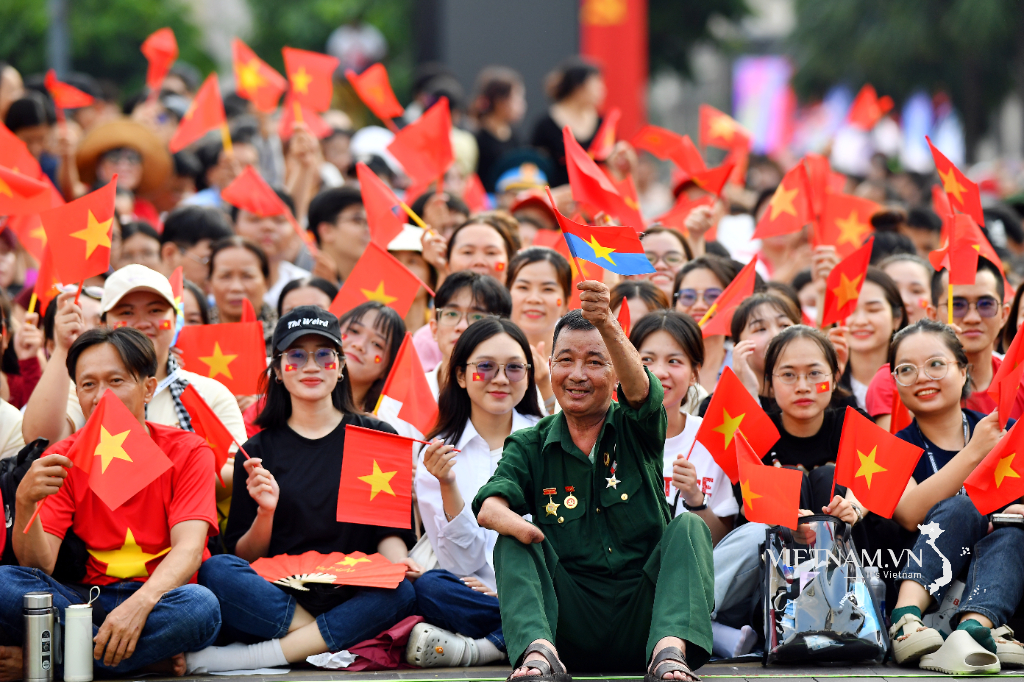


Comment (0)